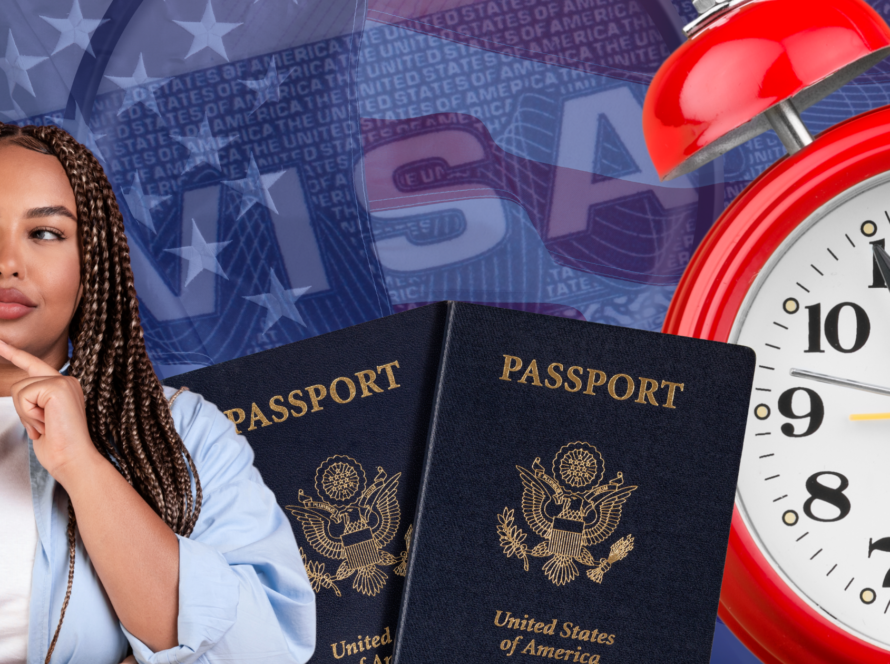
If you’re exploring the EB-1A green card, you’ve probably come across the phrase “high salary” as one of the possible ways to prove extraordinary ability. But what exactly does that mean? How high is “high”? And most importantly—how do you show USCIS that your salary meets this standard?
Let’s break it down in simple, layman’s language so you can feel confident about your EB-1A journey.
What is the EB-1A Visa?
The EB-1A, also known as the Extraordinary Ability Green Card, is designed for people who are at the very top of their field—whether in science, arts, business, athletics, or education. The best part? Unlike many other employment-based green cards, you don’t need an employer to sponsor you. You can self-petition if you can prove your achievements are truly extraordinary.
USCIS (U.S. Citizenship and Immigration Services) has laid out 10 categories of evidence. You need to meet at least 3 of them (unless you have a one-time major award like a Nobel Prize, which alone could qualify you).
One of those categories is the “high salary” criteria—and that’s what we’re diving into today.👉 For a full list of EB-1A criteria, check the USCIS policy manual.
What Does “High Salary” Mean in EB-1A?
According to USCIS, you can use your compensation as evidence of extraordinary ability if you can prove it is “significantly higher than that of others in the field.”
Sounds simple, right? But the tricky part is defining “significantly higher.”
In practice, USCIS looks at:
- Your base salary (not just bonuses or perks)
- How your pay compares to others in the same occupation, industry, and geographic location
- Whether your salary reflects a level of distinction that sets you apart from your peers
So, it’s not just about being well-paid—it’s about being in a different league compared to people in similar roles.
How High is “High” for USCIS?
Unfortunately, there isn’t a magic number or fixed percentage published by USCIS. But based on real cases and expert insights, here’s what generally works:
- Top 10% or higher: If your salary is in the top 10% of earners in your occupation and region, you have a strong case.
- National vs. Regional Data: USCIS may compare your earnings against national averages, not just your city or state.
- Field-Specific Standards: A high salary for an academic researcher might look different than for a tech executive.
For example, if you’re a software engineer in California making $250,000 a year while the median is $150,000, that’s a good sign you may qualify under the high salary criterion.
👉 Check the U.S. Bureau of Labor Statistics (BLS) for up-to-date salary averages in your field.
Evidence You Can Use to Prove a High Salary
Here’s where you need to get practical. USCIS wants clear documentation. You can use:
- Employment contracts or offer letters showing your salary
- Pay stubs and tax returns to confirm actual earnings
- Official salary surveys (e.g., from BLS, Glassdoor, or industry reports)
- Comparative data showing average salaries in your field
- Expert letters from industry professionals explaining why your salary is above average
Pro tip: Don’t just submit a pay stub. Context is everything. Pair your proof of salary with authoritative data that highlights how much higher it is than the norm.
Common Mistakes to Avoid
- Ignoring Regional Variations: $100,000 in New York City doesn’t mean the same thing as $100,000 in Texas.
- Relying on Bonuses Alone: USCIS focuses more on guaranteed salary than performance-based incentives.
- Not Providing Context: A high salary only matters if you prove it’s above industry standards.
- Submitting Outdated Data: Use recent statistics to strengthen your case.
EB1A High Salary Criteria vs. Other Evidence
Remember, you don’t have to use the high salary criterion. EB-1A allows flexibility. Some people focus instead on publications, awards, or memberships in distinguished associations.
But if your pay is genuinely exceptional, it can be one of the most straightforward pieces of evidence to include.
Think of it like this: A prestigious award is one way to show recognition. A salary that’s way above your peers? That’s another form of recognition—one that’s backed by numbers.
Real-World Example (Hypothetical)
Imagine you’re a data scientist:
- Median salary in the U.S. for data scientists: ~$115,000 (according to BLS)
- Your annual salary: $220,000
That’s nearly double the median. If you submit:
- Offer letter + pay stubs
- Tax return to prove consistency
- Salary report from BLS
- Expert letter from a hiring manager confirming you’re in the top 5% of earners
You’d have a solid case for meeting the EB-1A high salary criterion.
What if Your Salary Isn’t “High Enough”?
Don’t panic. You only need to meet 3 out of the 10 EB-1A criteria. If your salary doesn’t stand out, you might shine in other areas like:
- Publications in top journals
- Invitations to judge others’ work
- Media features or press coverage
- Significant contributions to your field
So, while a high salary is powerful, it’s not the only path.
Tips for Strengthening Your EB1A High Salary Case
- Use Multiple Sources: Don’t rely on one salary survey. Back it up with at least 2–3 authoritative reports.
- Highlight International Pay Gaps: If you’ve worked abroad, show how your U.S. salary compares globally.
- Include Benefits if Significant: Sometimes stock options, housing allowances, or performance bonuses can be considered—if you explain their value.b1a
- Frame It Professionally: Have experts write recommendation letters that emphasize your exceptional compensation.
The Role of Immigration Consultants
Navigating the EB-1A process is like putting together a jigsaw puzzle—you have all the pieces, but the picture only makes sense when arranged correctly. That’s where consultants like My Green Card Story can help.
We’re not attorneys, but we specialize in:
- Reviewing your profile to identify your strongest evidence
- Helping you gather and organize documentation
- Advising on strategy to present the best possible petition
👉 Want to know if your salary qualifies as “high” under EB-1A? Book a consultation with us today and let’s evaluate your case together.
Final Thoughts
The EB-1A high salary criterion is one of the most numbers-driven ways to prove extraordinary ability. If your earnings truly outpace those of your peers, it can be a compelling piece of evidence for your petition.
But remember: it’s not just about making a lot of money—it’s about showing USCIS, with solid evidence, that your pay reflects your exceptional standing in your field.
And if you’re unsure where you stand, don’t guess. Let’s talk. At My Green Card Story, we’ll walk you through your profile and help you decide whether the high salary criterion is worth highlighting—or if you should focus on other strengths.
👉 Schedule a consultation with us and take the first step toward your U.S. immigration journey today.
For official information on the EB-2 and NIW process, visit the USCIS website.
Let’s make Your EB2-NIW & EB1A journey a success! Stay connected with us! Follow My Green Card Story on all our socials for the latest updates, tips, and inspiring success stories. Got questions? We’re here to help!



